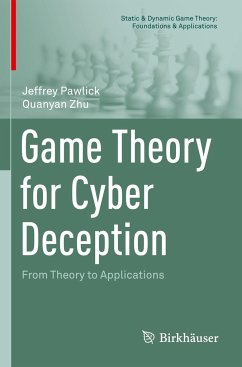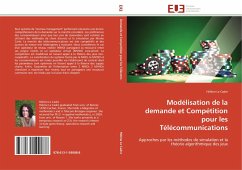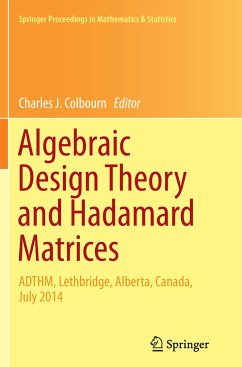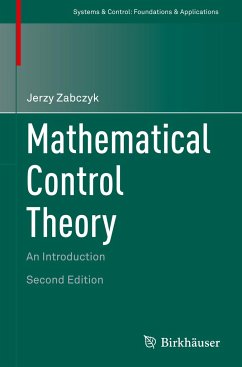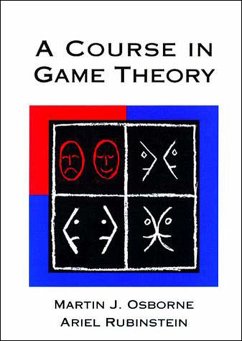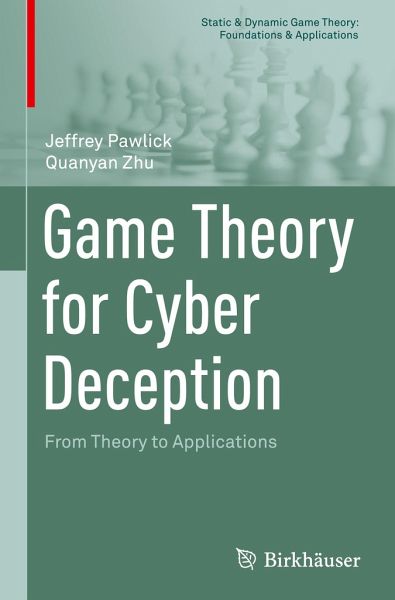
Game Theory for Cyber Deception
From Theory to Applications
Versandkostenfrei!
Versandfertig in 6-10 Tagen
82,99 €
inkl. MwSt.
Weitere Ausgaben:

PAYBACK Punkte
41 °P sammeln!
This book introduces game theory as a means to conceptualize, model, and analyze cyber deception. Drawing upon a collection of deception research from the past 10 years, the authors develop a taxonomy of six species of defensive cyber deception. Three of these six species are highlighted in the context of emerging problems such as privacy against ubiquitous tracking in the Internet of things (IoT), dynamic honeynets for the observation of advanced persistent threats (APTs), and active defense against physical denial-of-service (PDoS) attacks. Because of its uniquely thorough treatment of cyber...
This book introduces game theory as a means to conceptualize, model, and analyze cyber deception. Drawing upon a collection of deception research from the past 10 years, the authors develop a taxonomy of six species of defensive cyber deception. Three of these six species are highlighted in the context of emerging problems such as privacy against ubiquitous tracking in the Internet of things (IoT), dynamic honeynets for the observation of advanced persistent threats (APTs), and active defense against physical denial-of-service (PDoS) attacks. Because of its uniquely thorough treatment of cyber deception, this book will serve as a timely contribution and valuable resource in this active field.
The opening chapters introduce both cybersecurity in a manner suitable for game theorists and game theory as appropriate for cybersecurity professionals. Chapter Four then guides readers through the specific field of defensive cyber deception. A key feature of the remaining chapters is the development of a signaling game model for the species of leaky deception featured in honeypots and honeyfiles. This model is expanded to study interactions between multiple agents with varying abilities to detect deception.
Game Theory for Cyber Deception will appeal to advanced undergraduates, graduate students, and researchers interested in applying game theory to cybersecurity. It will also be of value to researchers and professionals working on cybersecurity who seek an introduction to game theory.
The opening chapters introduce both cybersecurity in a manner suitable for game theorists and game theory as appropriate for cybersecurity professionals. Chapter Four then guides readers through the specific field of defensive cyber deception. A key feature of the remaining chapters is the development of a signaling game model for the species of leaky deception featured in honeypots and honeyfiles. This model is expanded to study interactions between multiple agents with varying abilities to detect deception.
Game Theory for Cyber Deception will appeal to advanced undergraduates, graduate students, and researchers interested in applying game theory to cybersecurity. It will also be of value to researchers and professionals working on cybersecurity who seek an introduction to game theory.





